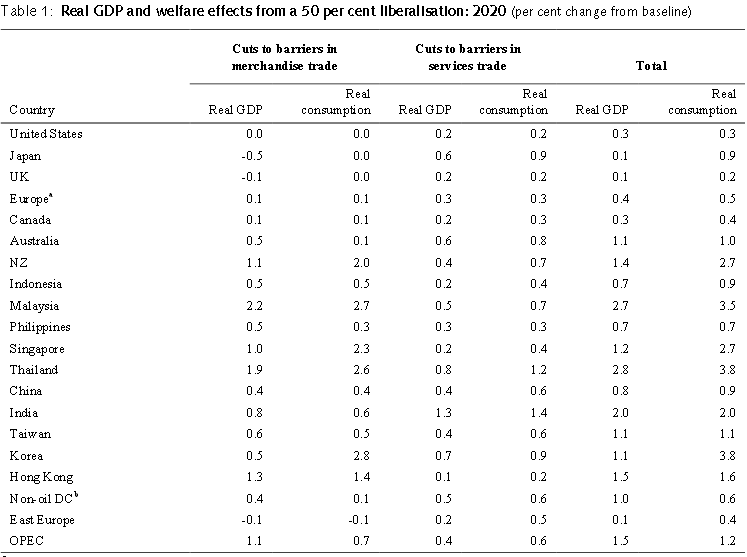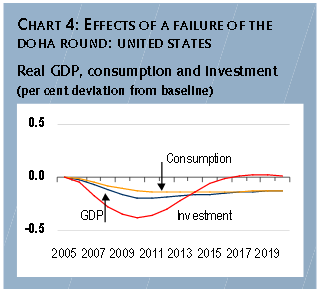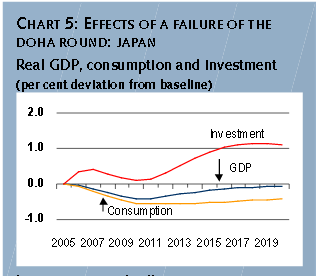Introduction
The Doha Round was a developmental agenda that was launched in Doha, Qatar, in 2001. The declaration provided a platform for negotiations on important subjects such as services and agriculture, particularly those that affected developing countries. Therefore, its launch provided developing countries with an opportunity to inject developmental elements into the multilateral systems of trading.
The agreement emphasized its intended outcome of meeting most of the growing needs of emergent countries with priority given to rural advancement and food security. These outcomes were to be achieved over certain predetermined timeframes. Nevertheless, they were all missed. Since its inception in Doha, the negotiations have faced the challenge of enormous differences among its stakeholders.
The US, the EU, and developing countries have had to face each other on issues that revolve around tariffs, agriculture, trade creation, and industrial duties. The paper reveals The Doha Round’s failure to facilitate progress among developed and emerging nations through the injection of multilateral trading systems. The paper confirms that it has not been effective in its goal of solving global issues since it has been marred by persistent positional differences among the US, the EU, and developing nations.
Launching the Doha Round
On 9 November 2001, ministers of trade from member countries of the WTO met in Doha, Qatar for their fourth WTO Ministerial Conference. During the meeting, the attendees agreed on undertaking a new round of negotiations regarding multilateral trading systems. Before the Doha Conference, negotiations were already taking place on the subject of trade and agriculture. In addition, some member countries such as the US wanted to expand their services and agriculture talks to promote tradeoffs in the quest of achieving trade liberalization.
Another speculated reason for the push for negotiation was to revive the global economy that had been struck by recession and cases of terrorism. One argument held by supporters of trade liberalization policies such as exemption of tariffs is that they would bring with them the benefit of opening up the markets, thus making it easier for member countries to trade. However, such regional agreements were inconsistent with the WTO’s non-discriminatory principles. This situation could deny benefits to the majority of the poor countries who were often not participating in such arrangements.
The Doha Ministerial Conference set the pace for other negotiations that would be conducted in the facilitation of the agenda. Except for the Dispute Settlement Understanding actions, the attendees of the conference agreed that the outcome of all negotiations was to be done as a single undertaking. This move implied that all members had to agree on a single collective agreement through a balance of concessions. Table 1 below shows the expected outcomes if the Doha Round was to be successful in its implementation of the raised agenda items as McKibbin and Stoeckel demonstrate.

The Main Agendas
Agriculture was a very contentious issue during the Doha Round. Addressing the issue led to the delay of the Uruguay Ministerial Conference that was held between 1980 and 1990. The contention followed the material interest of some of the members who wanted it to be sidelined in the trade negotiations. They argued that the agenda had already been featured under other preferential trade agreements and on the General Agreement on Tariffs and Trade (GATT).
However, members from the developing states saw this stance as a major disservice due to the heavy reliance of their economies on communal agriculture. Among the priorities for these developing countries was to further push for their accessibility of the rich markets of developed countries through the negotiations. However, the general assertion was that developing countries failed to get a favorable deal because they were required to make costly but counterproductive commitments, which included the Sanitary and Phytosanitary Agreement and the TRIPS Agreement. Using the concept of strategic trade theory, Anderson and Martin assert that the two declarations were aimed at only expanding the markets of the developed markets, rather than improving the economies of scale of developing countries.
Secondly, the trade services agenda was to be implemented through the General Agreement on Trade in Services through which these services would be supplied. This clause greatly affected service providers who had initially considered themselves monopolies such as the energy and telecommunications sectors since the creation for the possibility of trade of services across borders and increase in privatization began to take shape.
According to Zedillo Ponce de León, Messerli, and Nielson, this growth was underpinned by the liberalization of direct foreign investment that was already spreading on a global scale. However, a backdrop was evident regarding a contrast of service negotiation with agriculture, which was also part of the GATTS. For instance, negotiations for agriculture were viewed as crucial for driving reform while services only played a complementary role. This situation posed a challenge on markets that were being opened on a unilateral basis through independent intergovernmental bargaining.
Non-Agricultural Market Access (NAMA)
The big push under NAMA involves the reduction in tariffs and other specified charges on both imports and exports with particular regards to the agreed objectives and varying needs of individual states. The mandate of this agenda was to provide flexibilities concerning the developmental, strategic, and fiscal needs of the parties bound under a contract and specifically to consider the special needs of the developing countries. Notably, before the Uruguay Ministerial Conference, the reduction in tariffs only applied to industrialized nations. Therefore, according to Kallummal, the developing countries stood to gain a lot from the implementation of this agenda.
However, there have been concerns that several industrialized countries have devised ways of overcoming the rules set under NAMA. Through alternative trade policies, these developed countries have managed to protect themselves against tariff policy agreements, therefore providing insight for a great need to look beyond the use of tariffs as the only instrument of regulating trade policies.
Issues on Development
Three major developmental issues have been contentious in the Doha Round: access to patented medicines, special and differential treatment of developing nations, and problems faced by developing countries in implementing the current obligatory trade commitments.
Accessibility to Patented Medicines
TRIPS Agreement
The TRIPS Treaty was the major topic that involved a balance of special interests by dominant export-oriented multinational pharmaceutical companies in developed countries that owned patents on public health needs and medicinal products. The TRIPS Agreement declaration considered member states from developing countries that lacked sufficient capabilities to manufacture cheaper medicinal products.
This situation caused the problem of accessibility. One of the outcomes of this agreement was to allow developed countries to issue compulsory licenses for the importation of these medicines. Nevertheless, despite the achievement of TRIPS in regards to public health in developing nations, the Doha Round failed to solve the global outstanding issue of protecting intellectual property over public health. According to Hoen, the failure to resolve this issue was a portrayal that the premature optimism of the TRIPS agreement.
Special and Differential Treatment
The Doha Ministerial Declaration reaffirmed the clause on Special and Differential Treatment for the developing countries. It was agreed that there should be a review of the provisions of special and differential treatment to make them stronger, more effective, precise, and operational. One of the key issues that were included in the agenda was bilateral trade between a developing country and a developed country. According to McKibbin and Stoeckel, the US and Japan had their share of losses from the failed Doha Round as revealed in their GDP as shown in the graph below.


It was argued that the bilateral trade between two such countries would render the developing country non-compliant with the trade policy due to their inability to show commitment. This problem was compounded by investors in the import sector lobbying for protection from their government against competitors. According to Conconi and Perroni, the problem was fuelled by the delayed the Doha Round’s implementation of commitment by the developing countries to liberalized trade policies in line with WTO provisions.
A concern was raised over the Doha Round’s difficulty in implementing the agreements that had been reached during the ministerial conference in Uruguay Round. This issue was linked to the lack of technical assistance and limited capacity. Another affirmation was that the expected benefits from the conference such as increased access to developed markets were not adequately realized. Nevertheless, according to Fergusson, these issues remain outstanding, particularly in sensitive areas such as investment measures, accessibility to markets, subsidies, and safeguards, among others.
A review of the WTO dispute settlement was called for following the need for a fresh review within four years due to claims of lack of effectiveness. Nevertheless, the deadline was passed with no review being made. The core reason for the big push for review emanated from the increased lack of confidence due to indifferences by contracting countries in terms of considering the Panel’s findings. This matter led to a deadlock in solving most of the high trading disputes. Good cases in point include the trade disputes that existed between the US and the EU that remained unresolved. The disputes escalated as an illustration of the failure of the existing WTO dispute settlement.
Conclusion
The Doha Round was aimed at solving issues that were pertinent to development such as agriculture, tariffs, trade creation, trade diversion, and better terms of service in special regards to developing nations. Positive results have been derived from the implementation of various agendas raised by trade ministers of member countries with great focus directed to developing nations that have been sidelined in terms of global trade benefits. However, special interests among various groups have continuously hindered the effective implementation of policy agreements to the extent of resulting in a failed attempt in solving important global issues such as food security, public health, and economic development of the least developed countries.
Bibliography
Anderson, Kym, and Will Martin. Agricultural Trade Reform and the Doha Development Agenda. Washington, DC: Palgrave Macmillan/World Bank, 2006.
Conconi, Paola, and Carlo Perroni. “Special and Differential Treatment Of Developing Countries In The WTO”. World Trade Review 14, no. 1 (2015): 67-86.
Fergusson, Ian. “World Trade Organization Negotiations: The Doha Development Agenda”. Congressional Research Service Report 1, no. 1 (2011): 1-24.
Hoen, Ellen. “TRIPS , Pharmaceutical Patents And Access To Essential Medicines: Seattle, Doha And Beyond”. Economics of AIDS and access to HIV/AIDS care 11, no. 8 (2003): 11-68.
Kallummal, Murali. “NAMA Negotiations under the WTO: Real Concerns?” Social Scientist 2, no. 3, (2006): 34-47.
McKibbin, Warwick, and Andrew Stoeckel. “What’s at Stake from the Success or Failure of the Doha Round.” The Economic Scenarios. Web.
Zedillo Ponce de León, Ernesto, Patrick Messerlin, and Julia Nielson. Trade for Development. London: Earthscan, 2005.